12 of My Favorite Slowdive Songs
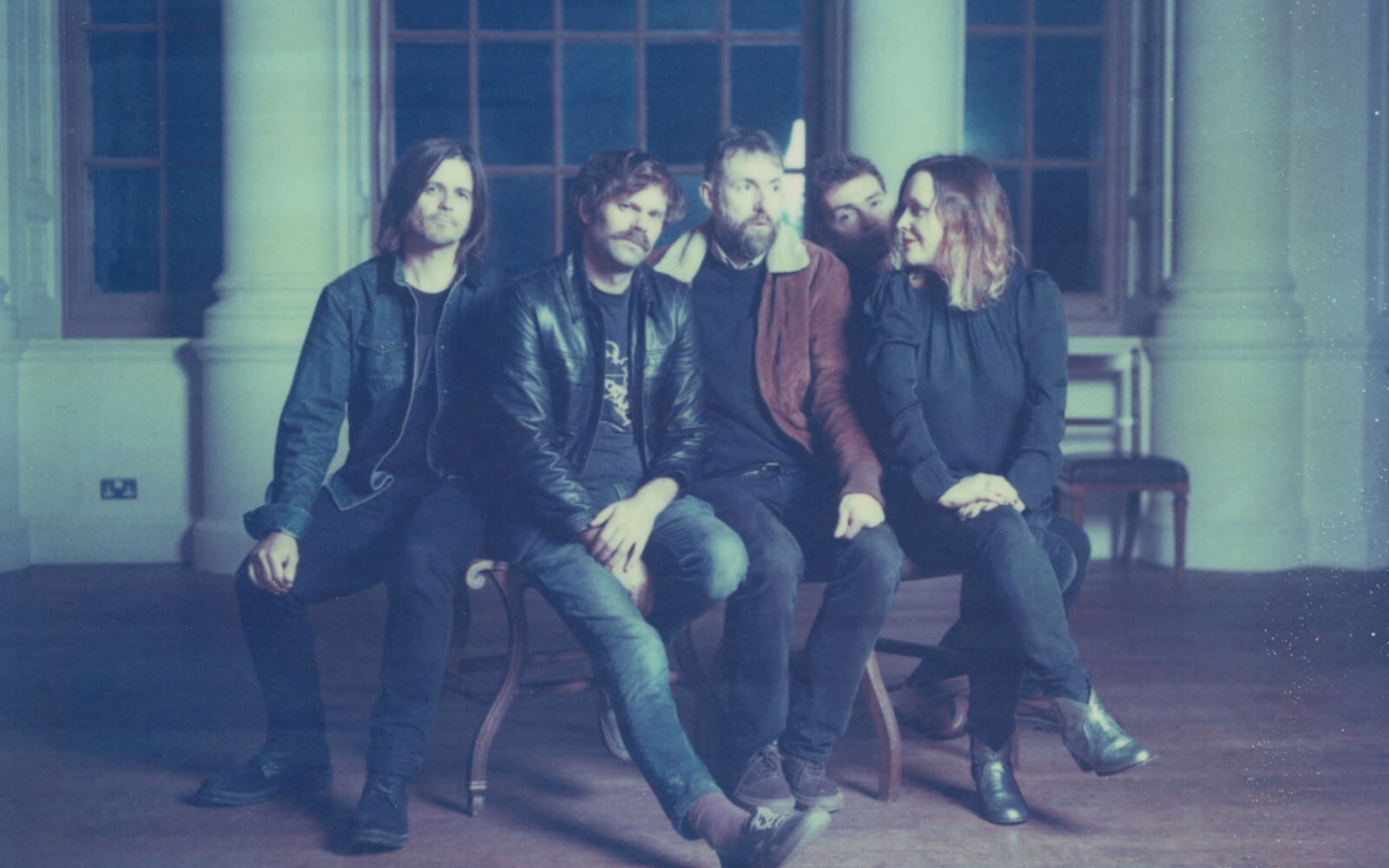
Tomorrow will see the seminal shoegaze outfit Slowdive release their first new album in over two decades. Though derided by much of the music press, who’d become obsessed with Brit-pop by the mid-to-late ’90s, Slowdive’s music would ultimately have a great legacy, growing from a cult following to influencing numerous artists in the ’00s and beyond.
You can hear that legacy’s foundation in this collection of songs, which I’ve compiled from across Slowdive’s discography to celebrate the new album’s release. Obviously, I’m not including any Slowdive-related projects (e.g., Mojave 3, Monster Movie) or any of the members’ solo recordings — though I am certainly curious to see how the members brought their respective solo styles to bear on Slowdive’s new material. I’m also sticking to official releases, though there are plenty of unreleased demos floating around on YouTube that contain some great material.
Songs are ordered by original release date and track listing.
1. “Avalyn II” (Slowdive EP, 1990)
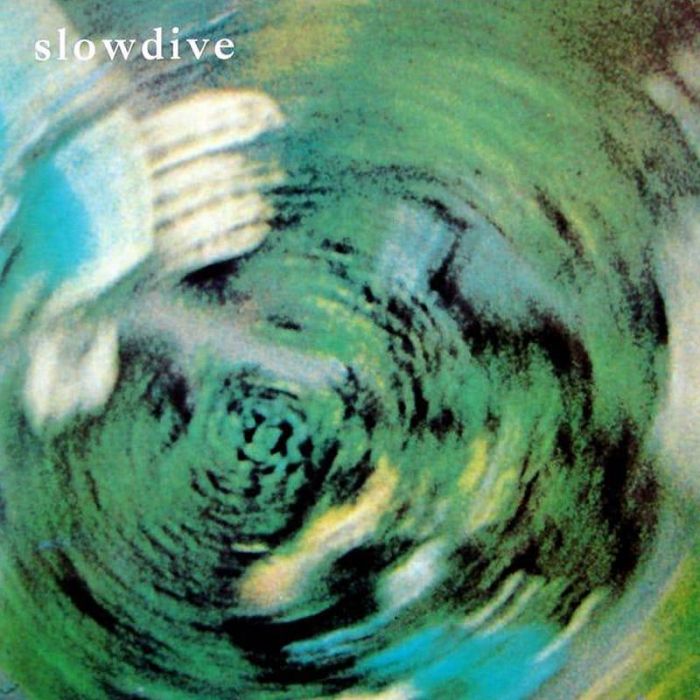
You have to hand it to Slowdive: it takes gumption to include an eight-minute instrumental full of guitar drones and atmospherics on your first release. But that’s precisely what Neil Halstead, Rachel Goswell, et al. did.
Though released when the band had been together for barely a year, there’s something quite measured and assured in “Avalyn II”‘s slow-burn. The way it builds and swells without ever getting out of control sounds like the work of a much more mature outfit, not a bunch of 19 and 20-year-olds.
Interestingly, this first EP received many accolades from the press, with Melody Maker naming it their “Single of the Week.” In a few short years, though, that same press would be falling over themselves to mock Slowdive, and shoegaze in general.
2. “She Calls” (Morningrise EP, 1991)
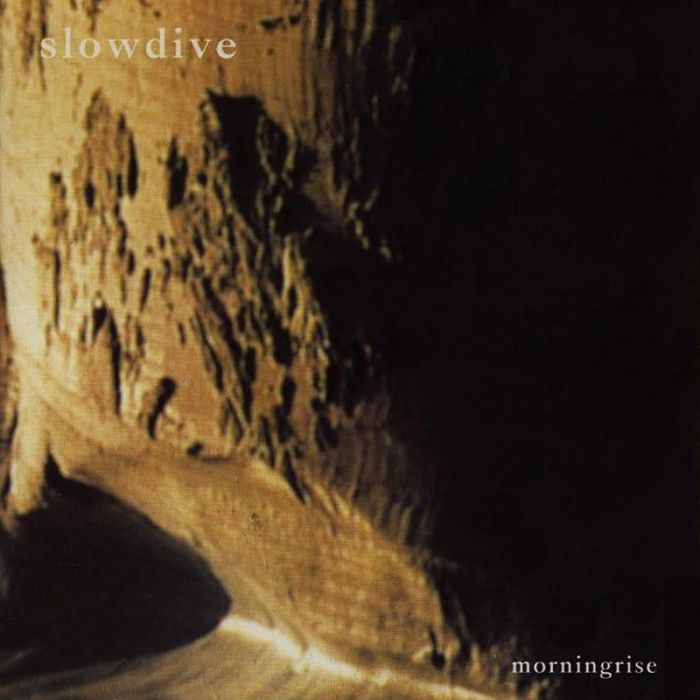
I always feel like this song gets easily overlooked in Slowdive’s discography, even though it’s one of their most intense and gripping songs. “She Calls” begins with rolling waves of percussion that threaten to drown the listener, while the guitars crash and roil in the background. Meanwhile, Halstead and Goswell’s harmonies ring out, singing lines like “She howls in ecstasy.” And the song’s climax? Let’s just say those final minutes contain the blueprints for everything Sigur Rós has done.
A little trivia: “She Calls” was originally released on 1991’s Morningrise EP but was later re-released on a promo 7″ with Ride’s excellent “Leave Them All Behind” single. That’s how I first discovered the song, and I was shocked and delighted to stumble across a Slowdive 7″ in my local record store’s clearance bin.
3. “Catch the Breeze” (Holding Our Breath EP, 1991)
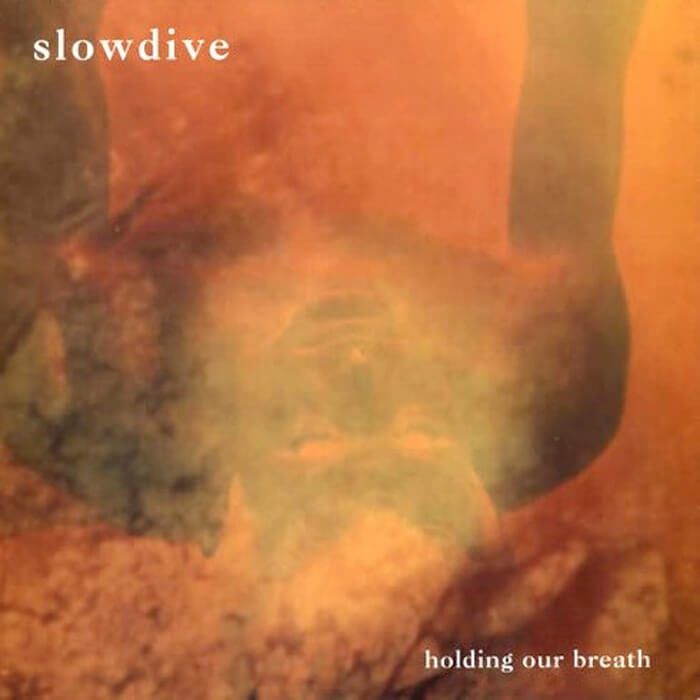
“Catch the Breeze” was the song that cemented Slowdive’s position as one of my favorite bands of all time. I bought a used cassette copy of Just for a Day after reading a glowing review in Brendon Macaraeg’s (long-defunct, sadly) Dreampop webzine. (If I recall correctly, he compared listening to Slowdive to being in a warm, comforting womb.) Suffice to say, Just for a Day lived up to Macaraeg’s high praise.
I still remember the first time I heard “Catch the Breeze“ ‘s climax. After nearly three minutes of drifting vocals and rainy day textures, the song explodes with Halstead, Goswell, and Christian Savill launching their guitar sounds skywards.
At the time, I still had visions/delusions of playing in a band — and as soon as this song’s climax hit, I realized that if I could ever make music that made people feel the way I felt during “Catch the Breeze,” then I’d be doing something right.
4. Primal (Just for a Day, 1991)
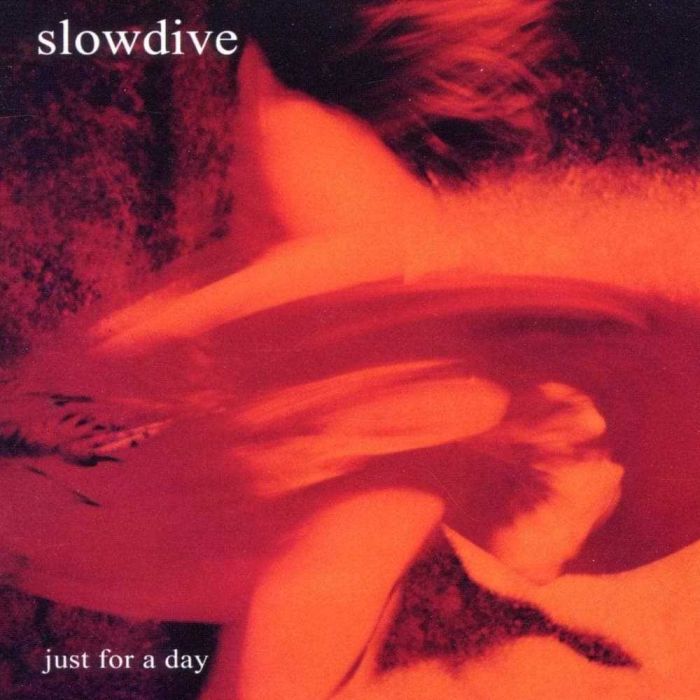
Slowdive’s early releases showed a penchant for being somber and dramatic, and “Primal” is a perfect example. Just for a Day’s final song starts off dreamily enough, with Halstead and Goswell singing/sighing “Today, I watched the colors fade” amidst shimmering guitar notes and cello strains. But in its final moments, the song takes a sudden turn towards darker, more ominous territory.
From the halfway point on, “Primal” begins collapsing in on itself; the chiming guitars, cello notes, and Goswell’s untethered vocals merge into a slow, stately spiral — and in the process, they become something primal (npi), evoking wild oceans and storm-filled skies.
Over the years, I’ve seen various remarks about The Cure’s influence on Slowdive. I can definitely hear that here, moreso than perhaps anywhere else in Slowdive’s oeuvre. In its final moments, “Primal” achieves the same sweeping, grandiose melancholy that flows throughout Disintegration.
5. “Souvlaki Space Station” (Outside Your Room EP, 1993)
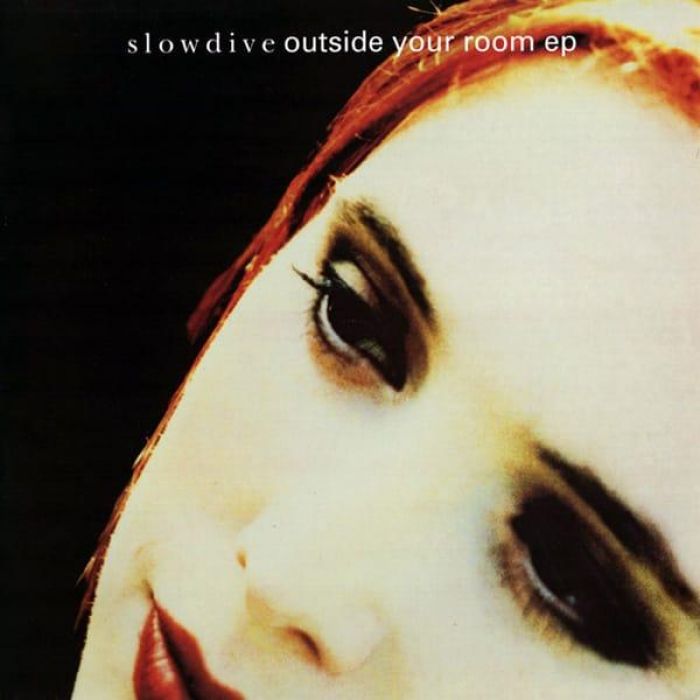
As its name implies, “Souvlaki Space Station” is Slowdive at their spaciest. The entire song is drenched in reverb and delay, giving it a dub vibe — and reflecting Neil Halstead’s growing interest in electronic/ambient music at the time — while some slide guitar streaks high overhead as if seeking escape velocity.
However, dark emotions lurk behind the spacey vibes. As pointed out in Pitchfork’s excellent Souvlaki documentary, Halstead and Goswell’s relationship had fallen apart right around the time of the Souvlaki sessions, making it something of a breakup album. Goswell’s voice takes center stage here, and though she’s buried under layers of sound, the few lyrical bits that do come through — e.g., “Curse your soul/I don’t wanna know you” — give the celestial sounds a bitter edge.
(As an added bonus, check out Violens’ “Space Around the Feel Station” mash-up of “Souvlaki Space Station” and Washed Out’s “Feel It All Around.” The two songs sound as if they were made to be mashed together.)
6. “40 Days” (Souvlaki, 1993)
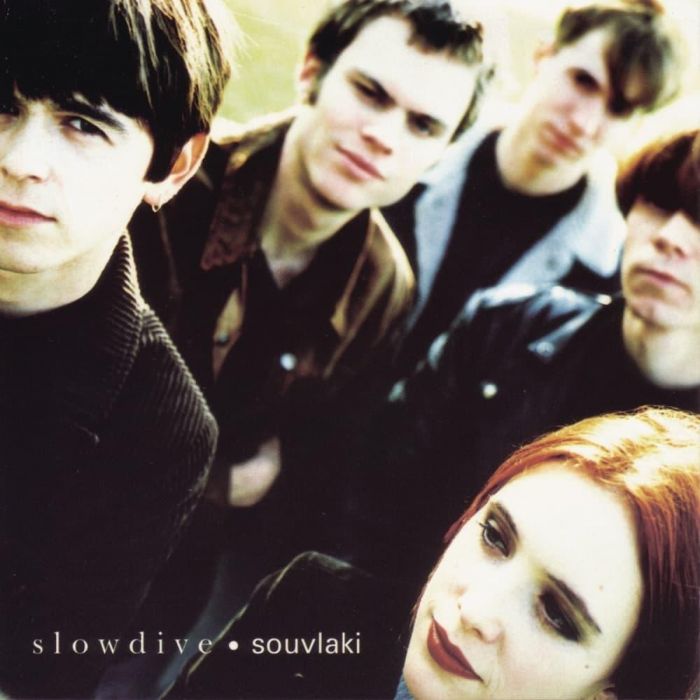
When people talk about the poppier direction that Slowdive adopted on Souvlaki, no doubt they’re thinking about “Alison.” And while “Alison” is certainly a great song, I’ve come to prefer “40 Days.” It rockets right out of gate, takes the same atmospherics and guitar sounds heard on the band’s earliest EPs, and weds them to better songwriting and cleaner production.
Even though “40 Days” starts off in a fairly aggressive manner — for Slowdive, anyway — it’s still, at heart, a melancholy, atmospheric, mope-filled ballad. A lot of that has to do with the band’s guitar sound here, which is as gorgeous and crystalline as you could want. The final minute or so is particularly lovely, with Halstead hazily singing “I said I love the way that you smile” while the guitars swirl and spiral around him.
7. “Melon Yellow” (Souvlaki, 1993)
It shouldn’t be too surprising that drugs figured into Souvlaki’s recording process. Halstead described working with Brian Eno as one of the “most surreal stoned experiences” of his life and various band members have admitted to smoking lots of weed in the studio. All that is to say that one can easily imagine the band creating “Melon Yellow” — with its mellow pace, reverbed drums, and lazily strummed guitars — while high out of their minds.
But as drugged out as “Melon Yellow” sounds, it’s still gorgeous — especially as the guitars flare out like a golden sunset behind Halstead and Goswell as they sing “So long, so long/It’s just a way to love you.” One certainly doesn’t need to be high themselves to enjoy the song; Slowdive’s music proves intoxicating enough all by itself.
8. “Dagger” (Souvlaki, 1993)
As I mentioned before, Souvlaki was recorded in the midst of Halstead and Goswell’s break-up. When you know that bit of info, it’s impossible to hear certain songs on Souvlaki as anything but attempts to deal with the fall-out. “Dagger” is the best example of this. One of the starkest songs in Slowdive’s discography — it’s just Halstead, an acoustic guitar, and some piano — “Dagger” finds Halstead singing about a “sunshine girl” and his own numbness to her pain. It’s pretty obvious who and what he’s singing about, and it ends Souvlaki on a sobering note.
One (legitimate) criticism of the shoegaze genre is that it trades emotional depth for sonic depth; by burying vocals and lyrics behind walls of sound, it more overwhelms listeners than connects with them. But in stripping away the usual shoegaze layers, “Dagger” revealed that not only was Halstead writing good songs beneath those layers of sound (and foretelling his later solo career), but that Slowdive’s music effectively walked the line between both emotional and sonic depth.
9. “In Mind” (5 EP, 1993)
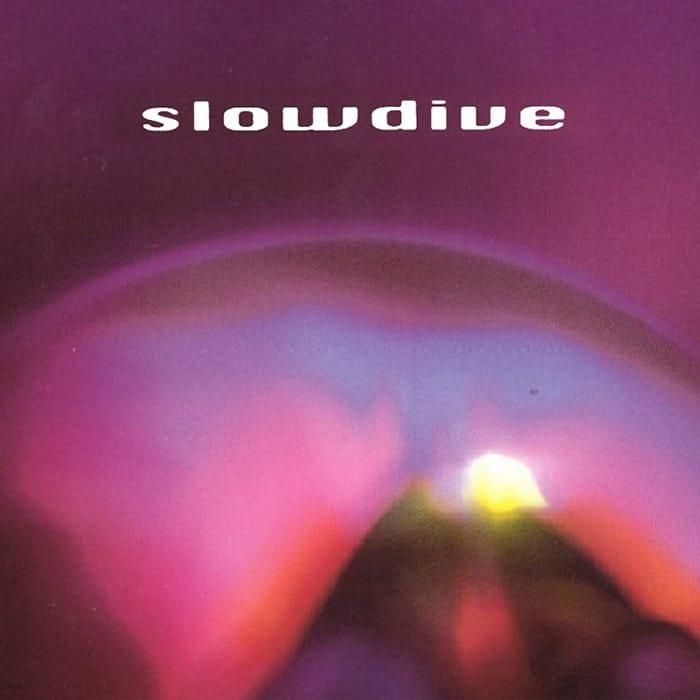
While Slowdive was recording Souvlaki, Halstead grew increasingly interested in ambient and electronic music like Aphex Twin and drum and bass. Subsequently, Souvlaki’s North American release came with two extra songs — “Good Day Sunshine” and “Missing You” — that blended Slowdive’s shoegaze sound with drum machines and sequencers, to surprisingly good effect.
However, I’d argue that “In Mind” is the pinnacle of Slowdive’s electronica experiments. Whereas other songs sought to blend Slowdive’s usual elements with drum machines, etc., “In Mind” is a complete reformulation of Slowdive’s signature sound in electronic form. There’s ‘nary a guitar to be heard on the song (or so it seems); instead, Goswell’s ethereal voice sighs and drifts over a shifting synthscape and pulsing, skittering rhythms. Even so, “In Mind” still has the same emotional affect as a “normal” Slowdive song.
“In Mind” was also remixed by Bandulu and Reload. Bandulu’s remix turned the song into an eerie, percolating acid joint while Reload stretched the song into ten-and-a-half minutes of ambient techno.
10. “Rutti” (Pygmalion, 1995)
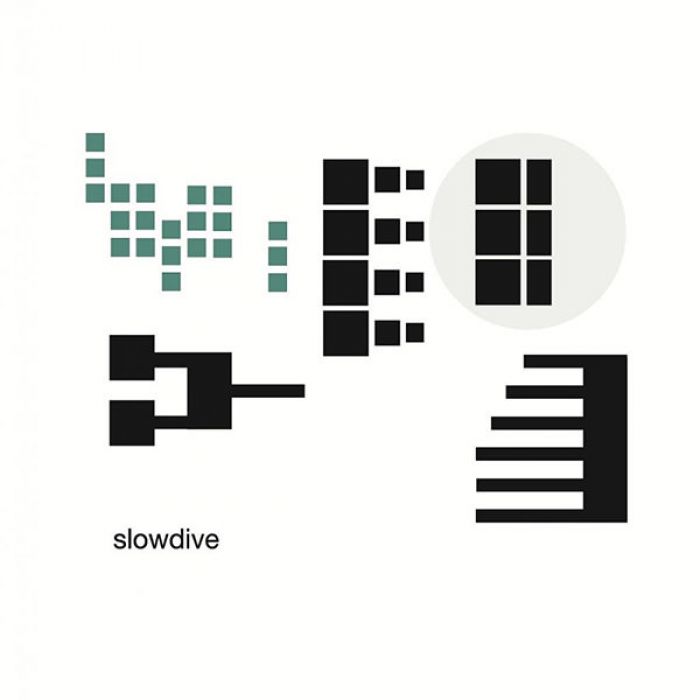
“Rutti“ ‘s opening strains no doubt threw many Slowdive fans for a loop. While the song was still very atmospheric, gone were the swirling layers of guitars and vocals. In their place were hazy, seemingly random guitar strums, jazz-y percussion, a loping bassline, and Halstead singing lyrics like “Into the light of mine/Inside I fall… I see the soul of you/It’s just a life.”
It was less Cocteau Twins and My Bloody Valentine and more Laughing Stock-era Talk Talk — and it signaled a massive shift in Slowdive’s sound towards minimalism and abstraction. Not surprisingly, the fickle British music press hated Pygmalion; one reviewer called it “yet more career suicide.” However, just as time has vindicated Talk Talk’s unorthodox sounds, so too has it been kind to “Rutti” (and Pygmalion as a whole), particularly in light of post-rock’s emergence in the ’00s.
11. “Blue Skied an’ Clear” (Pygmalion, 1995)
I was torn between including “Crazy for You” or “Blue Skied an’ Clear” on this list. Both are excellent songs in their own right, but I ultimately went with “Blue Skied an’ Clear” because I think it has a few more interesting elements. It contains many of the same sonic elements as “Rutti” but uses them in a more active and engaged manner, while also bringing in additional vocal layers, some organ, and other studio wizardry.
The result is a song that you feel like you can just fall back into, and let it warmly envelope you while waiting for the refrain — in which the guitars start ringing onwards and upwards until they merge with Goswell’s angelic voice — to take you to a whole new level of bliss.
12. “All of Us” (Pygmalion, 1995)
Just as Souvlaki ended on a subdued note with “Dagger,” Pygmalion ended on a subdued note with “All of Us.” Accompanied by delicately picked guitar and wistful string arrangements, Halstead sings cryptic lyrics like “This whole life is all of us/This whole dream is all of me,” his echoing voice taking on a ghostly quality. The song as a whole has a hushed air about it, as if Halstead finished it in the wee hours of the morning whilst alone in the studio.
After Pygmalion’s release, Halstead, Goswell, and new drummer Ian McCutcheon would re-emerge as the folk/country-influenced Mojave 3, guitarist Christian Savill would start Monster Movie, and previous drummer Simon Scott (who left after Souvlaki) would release a number of solo ambient albums. And so, Pygmalion was Slowdive’s swan song for the last two decades.
It seems only fitting that a swan song end on a moment as haunting as “All of Us.”